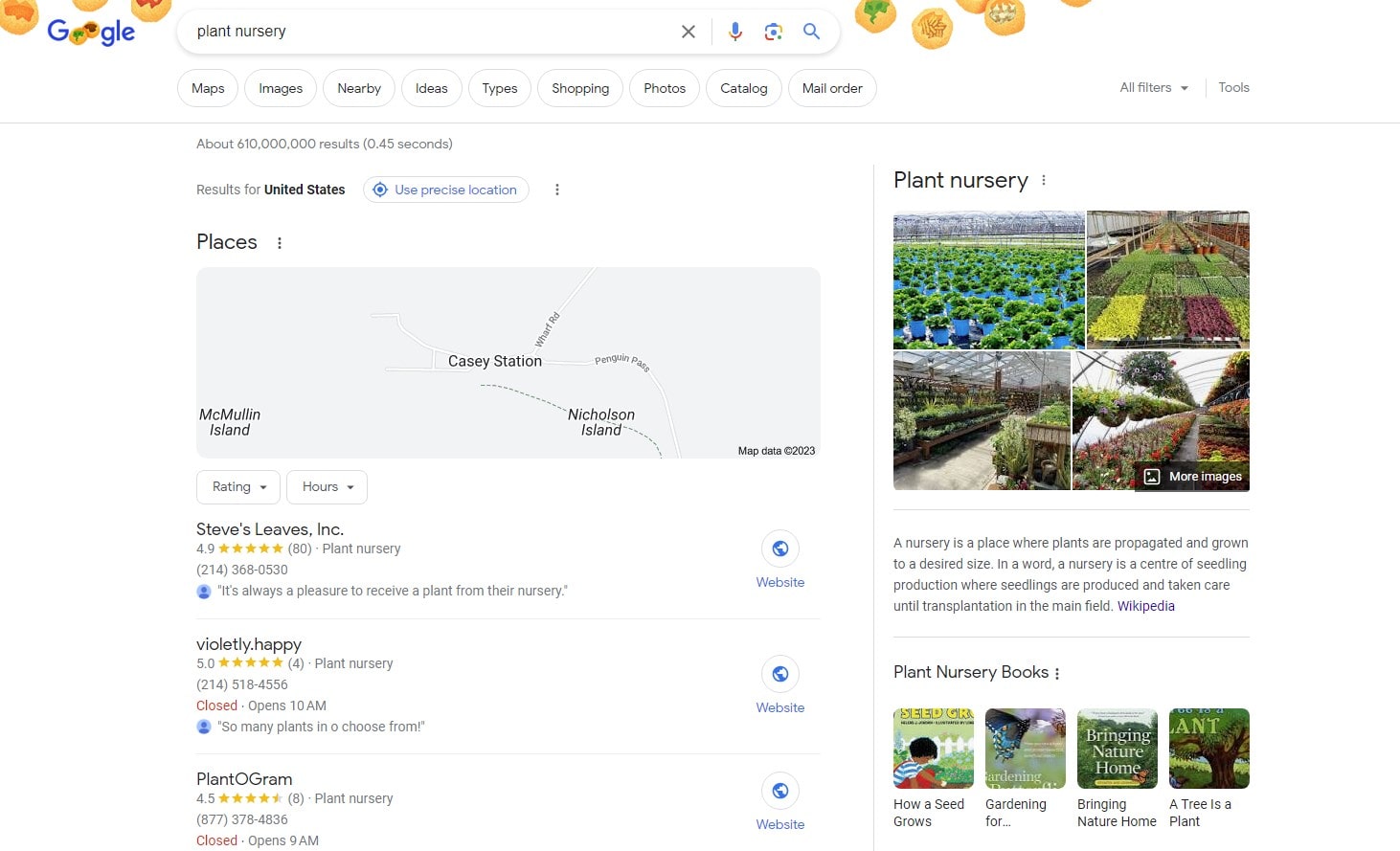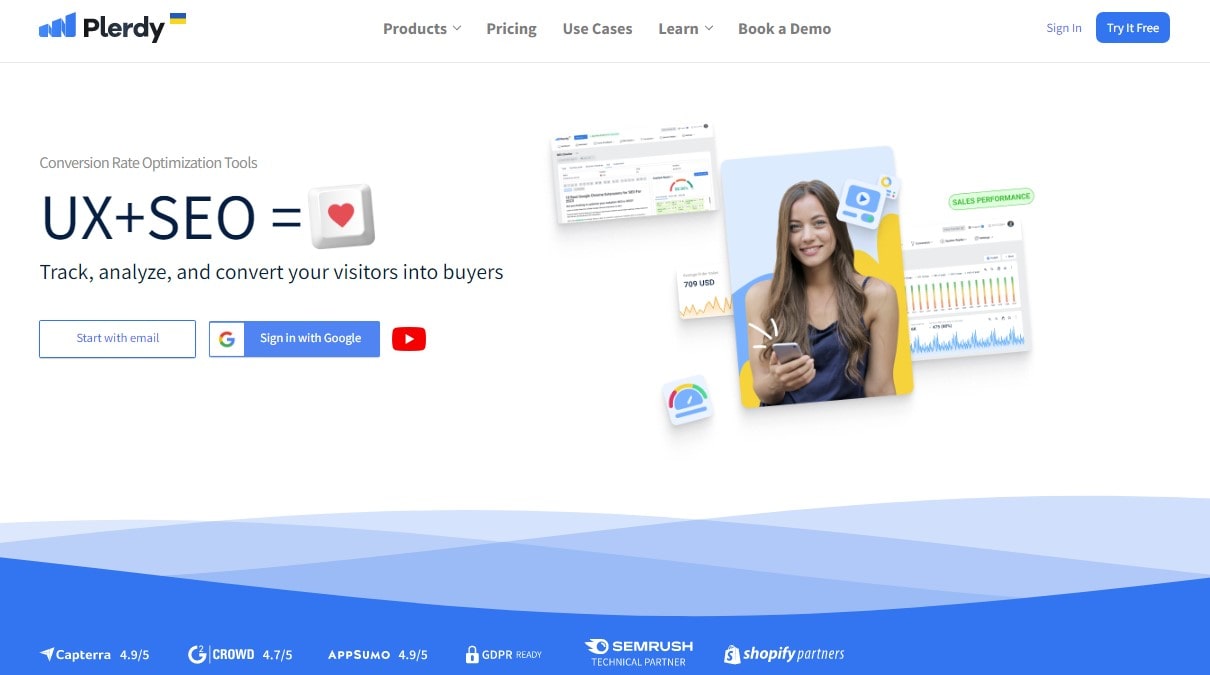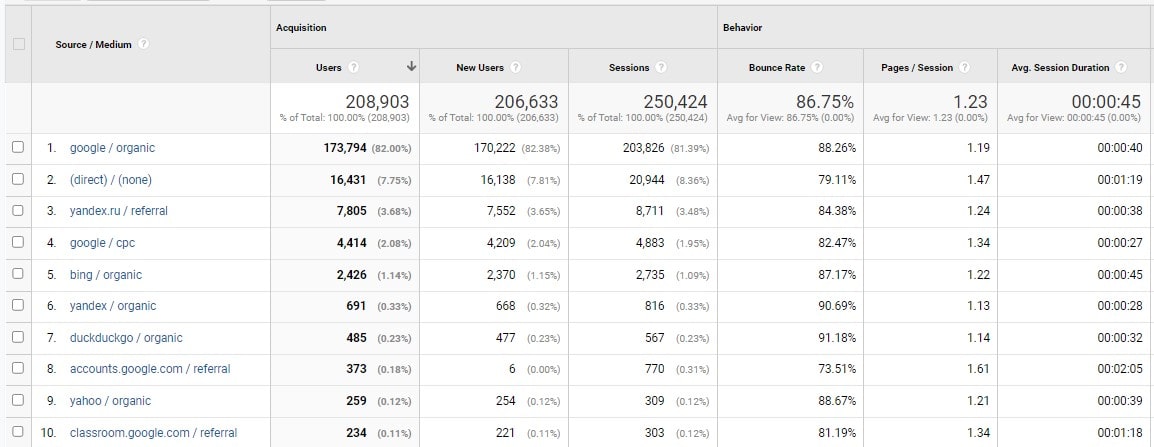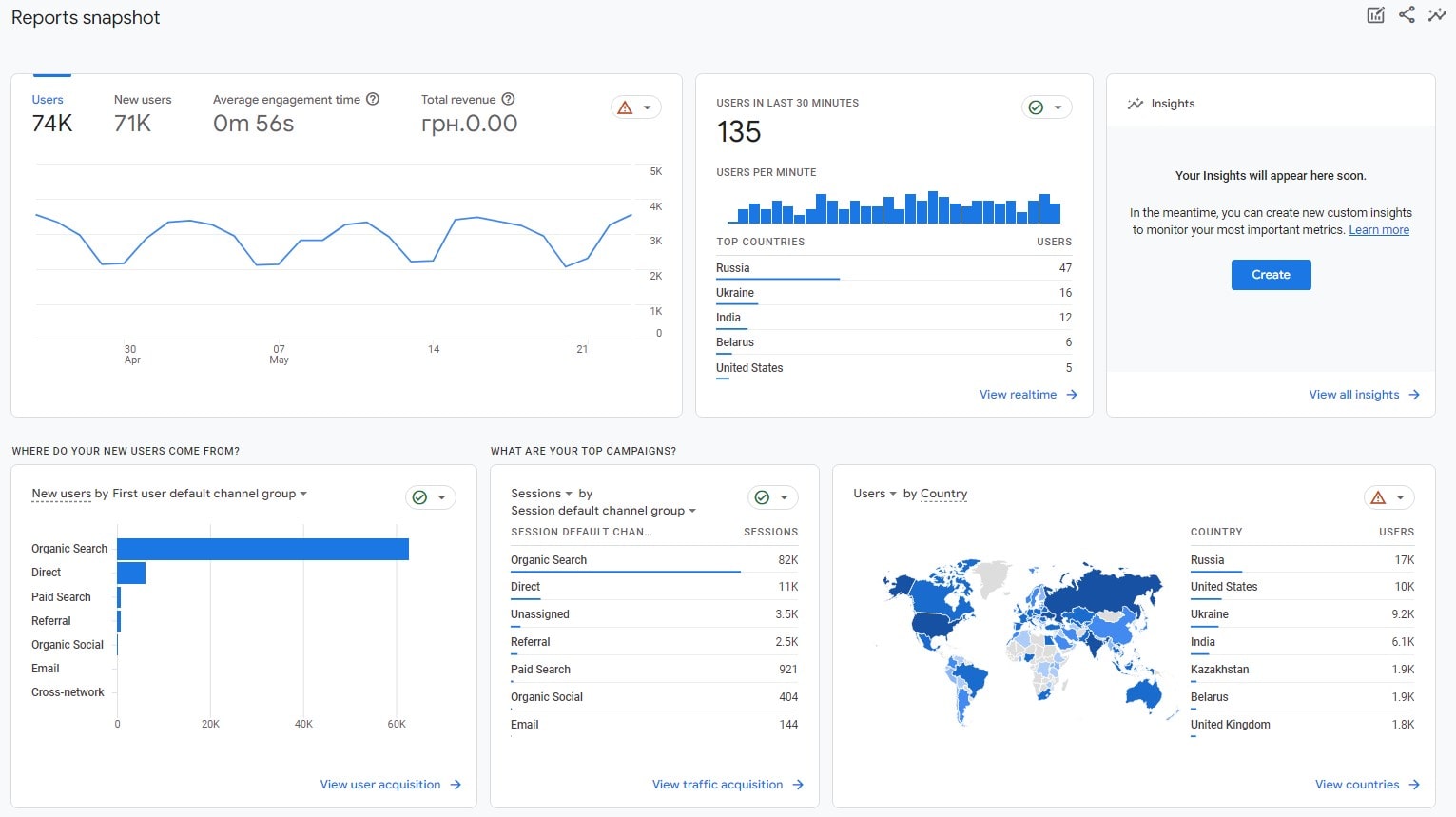?Welcome to the age of digital dominance—where marketing has transcended billboards and jumped onto screens. This transformation is not merely a trend but a critical pivot for small businesses. ?? Whether it’s a boutique coffee roaster in Seattle aiming to spread the aroma of their unique blends nationwide, or a local Miami gym inspiring fitness enthusiasts across the country, digital marketing is the vehicle driving their ambition. With tools like Plerdy, small businesses have a flashlight to illuminate their path, giving actionable insights to tweak strategies and boost conversions.? So, buckle up and dive into this exploration of why digital marketing is critical for small businesses and how it can catapult them into the limelight. Let’s decode the digital marketing sphere together! ?
The Gateway to Business Growth in the Digital Era
Let’s delve into the digital marketing ecosystem—a powerful force driving growth for small businesses. Despite common misconceptions, small businesses thrive in the digital marketing landscape, leveraging innovative strategies to compete with larger players. This frontier isn’t just for behemoths of the industry. Indeed, mom-and-pop stores, boutique firms, artisanal bakeries, and independent consultants—each benefit from digital marketing, breaking boundaries and capitalizing on opportunities.

Why Digital Marketing Matters in Today’s Marketplace
Embracing digital marketing is essential for small businesses in this digital-first marketplace. Today, businesses reach out to customers who live on the other side of the globe, as well as those right around the corner, all thanks to digital marketing. Gone are the days when geographic constraints limited your customer base.
Setting Pace with Modern Consumers
Modern consumers live, work, and play online, making digital marketing crucial for small businesses aiming to capture their attention. Understanding online behaviors and preferences opens doors for businesses to craft personalized experiences resonating with consumers on a deeper level. For instance, a local artisanal coffee shop could deploy targeted social media campaigns showcasing their unique blends, appealing to coffee lovers globally.
Exploiting the Benefits of Digital Marketing for Small Businesses

One of the most compelling arguments for small businesses to engage in digital marketing is its cost-effectiveness. Unlike traditional forms of marketing—which often require significant investments—digital marketing offers more bang for your buck. Your bakery in Brooklyn could attract customers from Manhattan and beyond with just a well-curated Instagram feed and some strategic hashtags.
Unlocking a Wider Audience
The digital landscape provides small businesses access to a global audience. Employing a smart digital marketing strategy, even businesses operating out of small towns can pique customers’ interest far and wide. Consider, for example, a small handcrafted jewelry business in Savannah that captures customers’ fancy in San Francisco, all thanks to a vibrant Pinterest profile.
Precise Targeting and Personalized Communication
Digital marketing tools facilitate precise targeting, ensuring your messages reach the right audience at the right time. For instance, a small vegan restaurant in Austin could use Facebook ads to reach local vegans, vegetarians, and health-conscious consumers, enhancing its local visibility.
Building Engaging Relationships
Engagement is at the heart of digital marketing—empowering small businesses to foster strong customer relationships. A craft brewery, for instance, could host live virtual tastings on YouTube, engaging beer enthusiasts and building a tight-knit online community.
Transparent Tracking and Valuable Insights
Lastly, digital marketing offers measurable results—tracking every click, share, like, comment, and sale. This transparency equips businesses with valuable insights, shaping future strategies. For example, an indie bookstore in Seattle could identify which of their promotional emails have the highest open rates and tailor their future communications based on these insights.
Digital marketing breaks down barriers for small businesses, unlocking global reach, facilitating customer engagement, and driving growth. The success stories of local boutiques, independent cafes, and other small enterprises illustrate the impact of this powerful tool. Seizing these opportunities, small businesses are no longer small—they are simply businesses that haven’t reached their full potential yet.
The Power of Different Digital Marketing Channels for Small Businesses
Website Mastery and SEO Power
Websites are the digital storefronts of the modern age. Small businesses have the opportunity to create compelling websites that tell their story, showcase products or services, and, most importantly, convert visitors into customers. For instance, a family-run organic farm in Maine could leverage its website to inform customers about its farming practices, list available produce, and even enable online ordering.
Social Media — The Digital Town Square
Social media channels enable small businesses to engage directly with their customers. Businesses can use these platforms to showcase their brand personality, promote products, and communicate in real-time. For instance, a fitness trainer in Miami could use Instagram to share workout tips, promote online training sessions, and motivate followers with transformation stories.
Email Marketing — Keep the Conversation Going
Email marketing remains a powerful tool for small businesses. It informs customers about company news, sales, and special offers. For instance, a small bookstore in Portland could send personalized book recommendations to customers based on their previous purchases.
Content Marketing — Storytelling that Sells
Content marketing is all about providing value to customers. Valuable content can attract and retain customers, whether it’s blogs, videos, podcasts, or infographics. A small boutique travel agency, for example, could start a travel blog offering tips and advice for travelers.
Online Advertising — Your Billboard on the Digital Highway
Paid online advertising can drive traffic, generate leads, and boost sales. Businesses can advertise on social media platforms, search engines, or other websites. For instance, a small bakery in Chicago could run a Facebook ad campaign to promote its special Valentine’s Day pastry range.
Case Studies: Small Businesses Succeeding with Digital Marketing
The Green Grocer: E-commerce Triumph
Consider Green Grocer, a small organic store in California. Recognizing the value of e-commerce, they revamped their website, allowing customers to browse products and place orders online. Coupled with an effective social media strategy, they amplified their brand reach and significantly boosted sales.
Vintage Vibes: Instagram Success
Vintage Vibes, a small thrift shop in New York, leveraged Instagram to display its unique collection. By posting well-styled photos and engaging actively with followers, they built an online community of vintage fashion lovers, contributing to a marked increase in foot traffic and sales.
Navigating Potential Challenges in Digital Marketing for Small Businesses

One of the foremost challenges small businesses face is a limited budget. Prioritizing high-ROI activities is key. Strategies such as organic social media engagement, influencer collaborations, or content marketing can offer excellent returns on a tight budget.
Bridging Knowledge Gaps
Digital marketing requires a specific set of skills. While resources and guides are abundant online, small businesses may consider partnering with a digital marketing agency or freelance experts to maximize their efforts.
Time Management
The vastness of digital marketing can be overwhelming. Businesses must identify key platforms and strategies aligning with their customers and business goals. Automating tasks, scheduling posts, and using project management tools can help manage time effectively.
Keeping Pace with Trends
Staying updated with trends can be challenging but essential. Following industry leaders, subscribing to marketing newsletters, or attending webinars can help businesses stay in tune with evolving trends.
Developing a Digital Marketing Strategy
A successful digital marketing approach for small businesses should include the following steps:
- Identifying target audience
- Selecting suitable digital marketing channels
- Developing a content strategy
- Setting clear, measurable objectives
- Regular monitoring and tweaking
Every business is unique, and what works for one might not work for another. Yet, in this digital age, denying the importance of digital marketing is not an option. Small businesses can truly thrive in the digital arena by understanding different digital channels, learning from successful peers, and overcoming challenges.
Embarking on the Digital Marketing Journey as a Small Business

An effective digital marketing strategy starts with a crystal-clear understanding of your target audience. Take a Portland-based plant nursery, for instance, that caters to urban gardeners; their digital marketing would focus on this niche—highlighting indoor plants, small-space gardening tips, and so on.
Step Two: Choosing Your Channels
Your chosen digital marketing channels should align with where your audience spends most of their online time. A gourmet pet food business may find more success showcasing its products on visual platforms like Instagram or Pinterest compared to a professional accounting service which might rely more heavily on LinkedIn or Email marketing.
Step Three: Content Creation
Creating engaging, valuable content is the heartbeat of digital marketing. Small businesses must offer their audience something of value, whether it’s enlightening blog posts, captivating social media content, or informative newsletters. Consider a small brewpub providing behind-the-scenes peeks into the brewing process or sharing food pairing suggestions.
Step Four: Goal Setting and Strategy Development
Clear goals guide your strategy, providing a roadmap for your digital marketing efforts. A small, family-run B&B in Vermont, for instance, might set a goal to increase bookings during the off-season. Their digital marketing strategy might involve showcasing off-season attractions, offering special rates, and targeting ads toward people looking to plan a vacation.
Evaluating Digital Marketing Success with Plerdy Analytics

Plerdy is a powerful analytics tool to help small businesses measure their digital marketing success. A local fitness studio, for instance, could use Plerdy to track how many website visitors sign up for a trial class—providing insight into the effectiveness of their call-to-action.
Decoding User Behavior
Plerdy also offers insights into user behavior. For example, a small home décor online store can use Plerdy to understand which products get the most clicks, helping them refine their product positioning and promotional strategy.
Boosting Conversions
Ultimately, Plerdy aids small businesses in optimizing their digital marketing for more conversions. A home-based artisanal soap business can experiment with different website layouts, track how each influences sales with Plerdy, and choose the most effective one.
Comparing Traditional Marketing with Digital Marketing

Traditional marketing offers local accessibility and a tangible presence but lacks the expansive reach of digital marketing. A small coffee roaster in Texas can only reach so many customers with local print ads. But by turning to digital marketing, they can share their unique blends with coffee lovers from coast to coast.
Engagement and Interaction
While traditional marketing communicates in a one-way manner, digital marketing opens up a two-way dialogue. For instance, a small bridal boutique can post a new wedding dress design on social media and instantly receive followers’ feedback—something traditional print or radio ads can’t offer.
Measurability and Adjustability
Digital marketing shines in its ability to provide immediate, accurate performance data. A family-owned pizzeria using Google Ads can see precisely how many people clicked on their ad and ordered a pizza, allowing for quick adjustments to maximize effectiveness.
In conclusion, embarking on a digital marketing journey offers small businesses an unparalleled opportunity to understand their audience, engage in meaningful dialogue, and measure their success. With tools like Plerdy, businesses can optimize their strategies, turning clicks into customers, while comparing the strengths and weaknesses of traditional and digital marketing can guide businesses in the most effective marketing mix for their unique needs.
Bottom Line
Small businesses especially can benefit significantly from digital marketing, harnessing its power to generate more prospects and tap into new markets. Using popular platforms like TikTok, Twitter, and Snapchat, you can greatly amplify your brand’s visibility and reach.
Current trends show an increasing number of users on mobile devices, opening up a whole new avenue for targeted marketing. At the same time, keeping a close eye on your competitors is crucial, using tools like Plerdy for insightful UX analysis.
Staying on top of your numbers is critical – knowing your PPC metrics, for instance, can guide your marketing strategy and yield better results. Plerdy’s SEO & UX analysis tool offers a great solution, providing key insights to ensure your business thrives online. Ready to dive in? With Plerdy, securing long-term business success is just a click away. Drive your small business forward – get started with Plerdy today!


